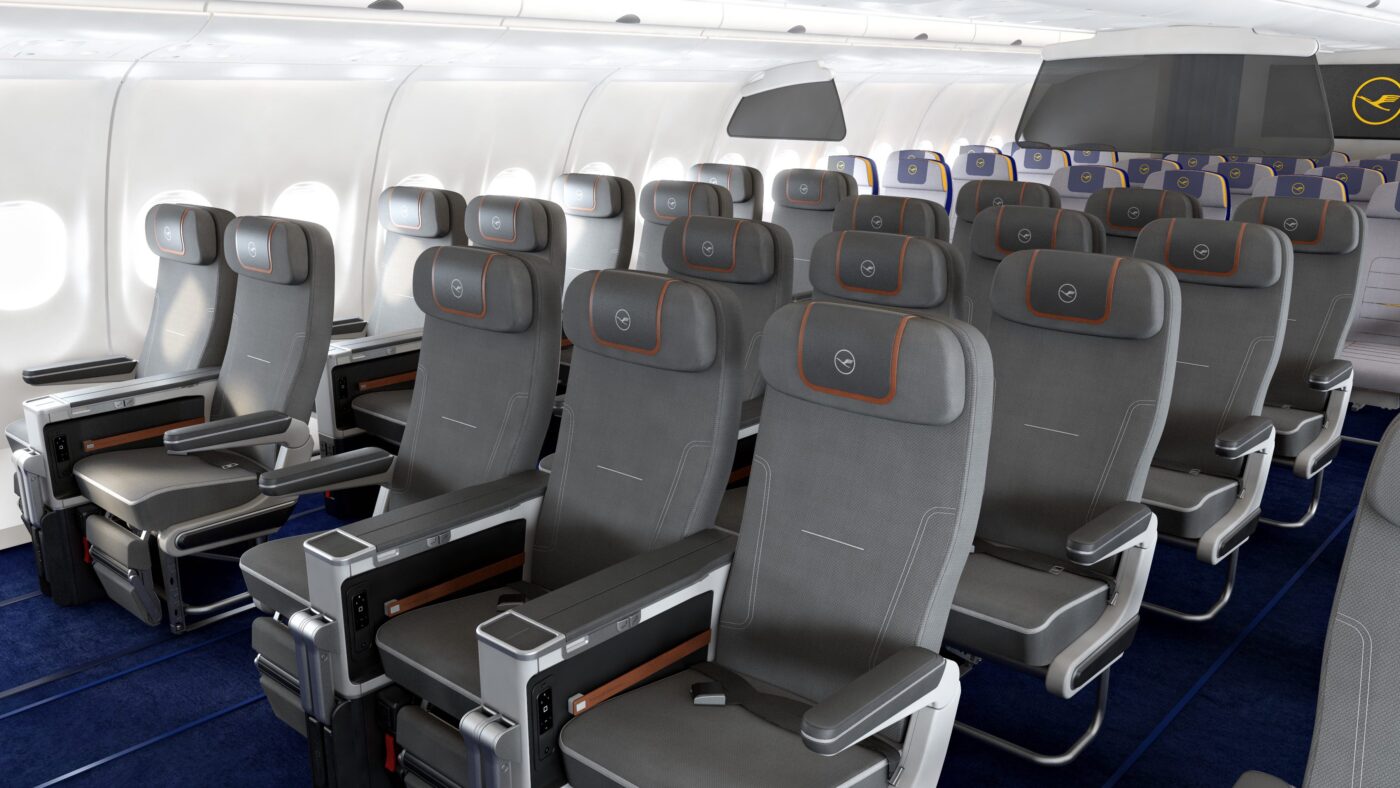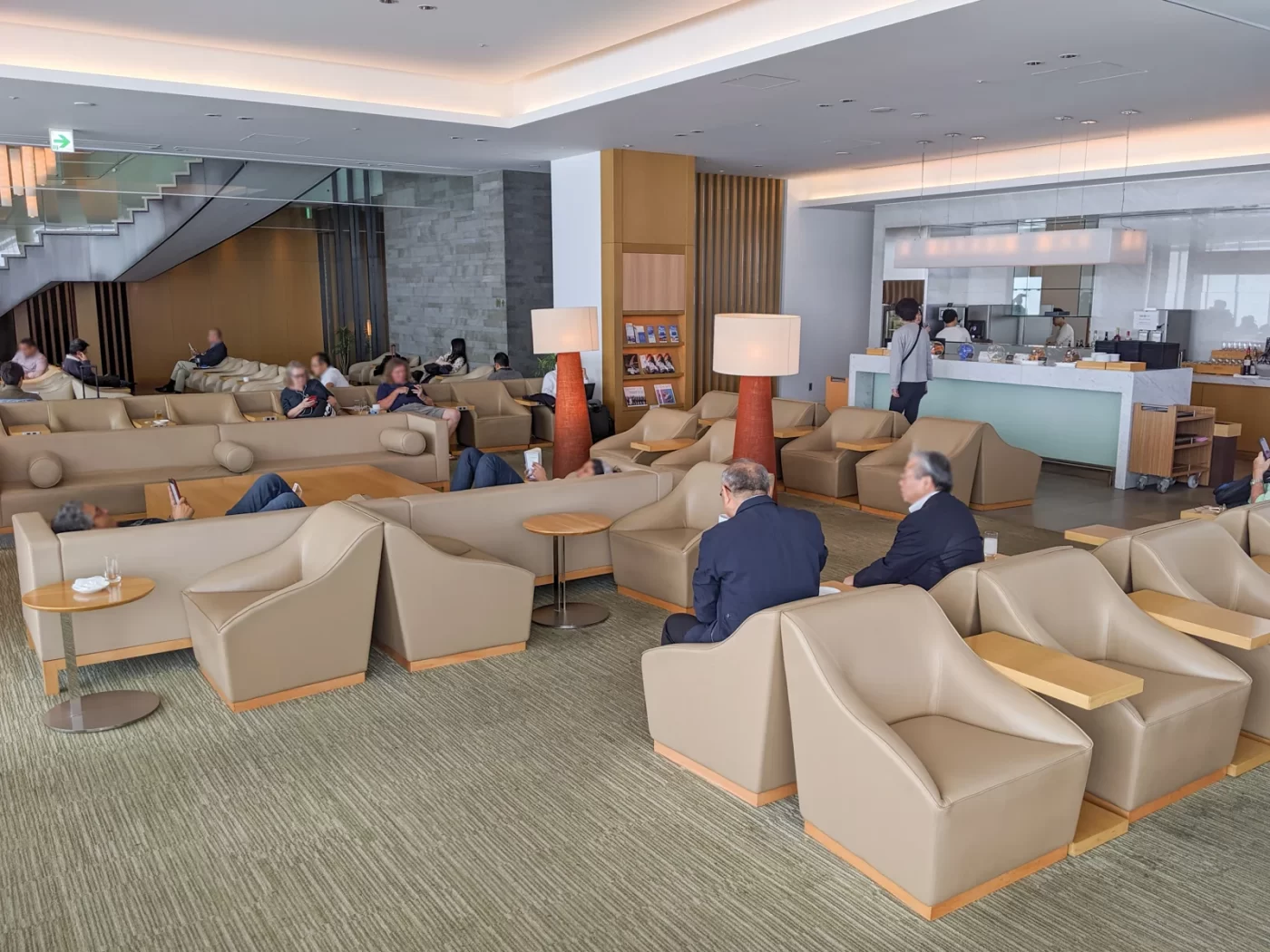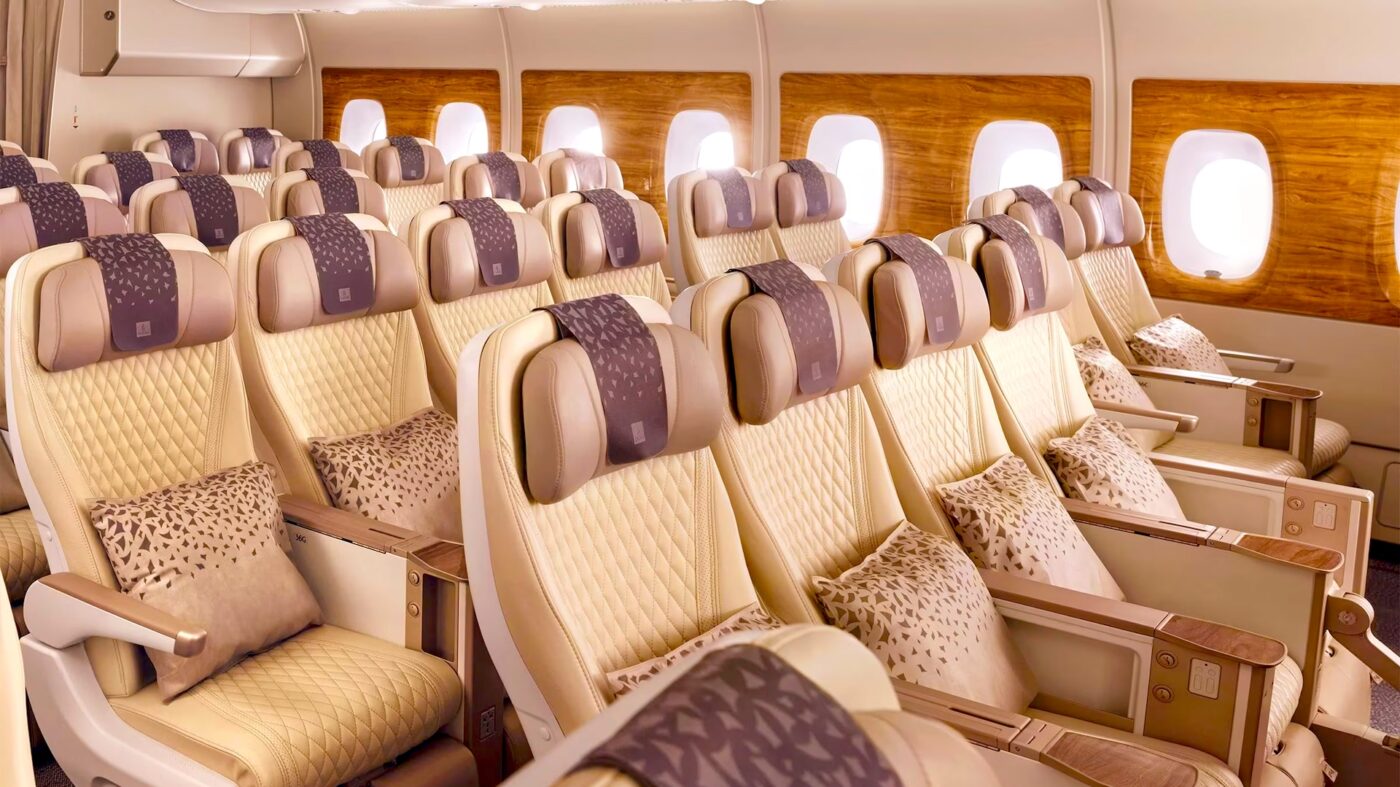Business class has been hit hard by a biting cost of living crisis as passengers tighten their belts around the world. However, its ready and willing backup — premium economy — doesn’t just offer passengers a financial incentive, but airlines too…
Only a matter of days after Qatar Airways’ CEO claimed that first class was totally pointless compared to business class, it now seems that business class is having its own usefulness questioned after data has emerged showing that premium economy might be the coolest new cabin in town. After the pandemic pushed the cost of business class to new highs, a growing number of one-time business-class travellers are now opting for premium economy, choosing comparable comfort at a fraction of the price.
A return flight to Europe in September with carriers like Qantas, Emirates, or Qatar now costs a jaw-dropping $15,000 AUD or thereabouts.
Conversely, premium economy seats are available at less than half that cost. Moreover, with an industry-wide average of 15cm more legroom and an additional 3.8cm of width over economy, passengers can bid farewell to cramped conditions while keeping their wallets that little bit fuller.
WATCH: Clearly business ain’t all it’s cracked up to be…
Premium economy offers a number of other benefits over economy, beyond the extra room to manoeuvre. While the recline angle of seats is, admittedly, not quite as generous as business class, it still allows for a more relaxed position during long-haul flights. Moreover, premium economy passengers enjoy a separate cabin, reduced chances of disturbances, and — depending on the specific aircraft’s configuration — may even have access to exclusive toilets.
But wait, there’s more! Additional perks include separate check-in, priority boarding between business and economy passengers, an enhanced food and drink menu, larger entertainment screens, and increased baggage allowances. Some carriers, like Japan Airlines (JAL), even grant premium economy passengers access to their business-class lounges in Japan and select overseas ports. The evidently huge allure of all this has led Harry Hohmeister — now chairman of Eurowings and formerly board member at Lufthansa — to give premium economy an enviable new moniker:
“A money-generating machine.”
Harry Hohmeister
Since he first made this comment way back in 2019, premium economy has continually proven to be a lucrative endeavour for airlines. If you stop to think about it, it shouldn’t really come as a surprise: premium economy allows airlines to maximize revenue without the need for all the additional luxuries and services you’d expect from business class.

In fact, a typical premium economy seat generates a massive 33% more revenue than a traditional economy seat and — more shockingly — 6% more than a business-class seat, all while occupying a near-identical amount of cabin space.
Perhaps this bumper profit margin also goes someway to explaining why airlines have been so keen to push their new ‘in-between class’ seating options — a handy moniker coined by The Sydney Morning Herald — potentially viewing them as a way to double-down on this model of maximising profits with as little spatial or financial investment as possible.
These new seats — known variously as Economy Plus, Comfort+, Main Cabin Extra, and Economy Space — primarily focused on offering extra legroom for those passengers that want or need it, but could transform into a money-making machine of their own should airlines be able to tweak the offer enough to coax in customers.
All of this is to say that as passengers adjust their wants and needs to better reflect the capacities of their quickly-diminishing wallets, airlines have quickly recognised that the once-dominant high-end offers on which they relied for so long are no longer attainable for a number of passengers.

Whilst its undeniably business-savvy for airlines to invest in premium economy and new quasi-classes, there’s an argument to be made that rather than creating new ways of juicing cash from travellers and boosting their own profits, maybe airlines’ time would be better spent finding ways to bring down ticket cost without expecting customers to compromise on comfort at all, given the irreversible and incalculable damage this could do to their brands in the long-run…
Whether you buy into that particular argument or not, this story does make one thing perfectly clear: as airlines scramble to find the perfect balance between comfort and affordability in a post-COVID world, premium economy has galloped into the lead, proving that sometimes the best things in life may not be free, but they don’t have to come with a first-class price tag.
